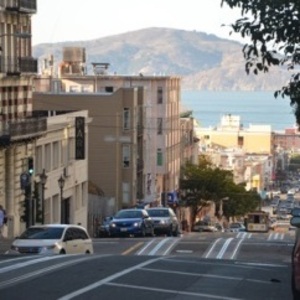San Francisco fleets complete switch to renewable diesel

Photo: EveK via Neste Corp.
December 17, 2015
BY Neste Corp.
Neste’s NEXBTL renewable diesel is now being used by the city and county of San Francisco, California. San Francisco announced Dec. 11 that the city and county of San Francisco have completely ended their use of petroleum diesel in the city’s fleet and replaced it with renewable diesel. This switch from petroleum diesel to renewable diesel will achieve a significant 50 percent greenhouse gas emissions reduction to the city’s diesel fleet.
The city of San Francisco is now the largest city in North America to use renewable diesel. Earlier this year, the city of San Francisco tested Neste’s renewable diesel followed by an announcement that it will switch all of its diesel fleet to renewable diesel by the end of this year. The city operates 1,966 diesel-powered vehicles, which are all now using renewable diesel. The annual consumption is about 5.8 million gallons of diesel fuel. This change will completely end the use of petroleum diesel at the 53 city-run fueling facilities immediately.
“As the global climate negotiations conclude, San Francisco and cities worldwide must continue to lead by taking bold actions that reduce greenhouse gas emissions immediately,” said Mayor Edwin M. Lee. “These actions cannot wait. San Francisco has ended its use of petroleum diesel to fill up the city’s fleet of vehicles and will significantly reduce greenhouse gas emissions and improve air quality for our residents immediately today.”
Advertisement
Neste’s renewable diesel has been widely available in California since 2012 and is a significant contributor to the continuing success of the low carbon fuel standard and Gov. Jerry Brown’s executive order to reduce greenhouse gas emissions by state agencies.
“Neste’s renewable diesel is a solution to reduce both greenhouse gas emissions and tailpipe emissions, which municipalities can greatly benefit from. Switching to it doesn’t require any additional investments on infrastructure or engine modifications. Thus, fleets can switch to renewable diesel overnight,” said Kaisa Hietala, executive vice president of renewable products for Neste Corp. “Neste is proud and happy to support San Francisco through the supply of renewable diesel. We feel privileged to help the city and county of San Francisco become more sustainable. It is our vision to give public and private fleets, as well as consumers, options to make such responsible choices.”
Advertisement
Neste’s renewable diesel is supplied to the city of San Francisco by Golden Gate Petroleum, which is one of the first distributors of Neste’s renewable diesel in the U.S. Golden Gate Petroleum sells Neste product through NeXgen Fuel, a company dedicated to bringing next-generation fuels to the market.
“As an industry leader in fuel distribution, Golden Gate Petroleum is pleased to offer Neste’s superior quality renewable fuel to our existing and new customers,” said Pat O’Keefe, vice president of Golden Gate Petroleum and CEO of Nexgen Fuel. “To date, we have had no customer complaints and only positive feedback about this 100 percent sustainable fuel.”
Many cities and corporations worldwide are now looking ways to reduce emissions and carbon footprint. Neste renewable diesel is increasingly being used to improve sustainability and air quality. In the U.S., California leads and shows example to others.
Neste renewable diesel plays significant role in the implementation of California’s climate plan. Earlier this fall Californian cities Walnut Creek and Oakland switched their diesel-powered municipal fleet to Neste renewable diesel. On Dec. 9, the California Department of General Services issued a memo stating that “State agencies shall purchase state-contracted renewable diesel fuel, in lieu of conventional diesel and biodiesel fuels, when making bulk purchases of fuel for diesel powered vehicles and/or equipment.” Neste renewable diesel will be supplied to the California DGS. Neste renewable diesel is also being used by many private fleets including Google’s gBuses and UPS’s delivery trucks.
Related Stories
Airbus is taking a significant step toward scaling the adoption of sustainable aviation fuel (SAF) by testing a new “Book and Claim” approach. This initiative aims to boost both supply and demand for SAF worldwide.
Signature Aviation, the world’s largest network of private aviation terminals, has announced the expansion of its blended SAF offering at six new locations across Europe following multiple blended SAF supply agreements.
Virgin Australia has entered an agreement with Viva Energy to SAF for its flights departing from Proserpine, Queensland. The SAF will consist of Jet A1 and a 30-40% synthetic blend component made from waste and residue feedstocks.
The largest single volume order of sustainable aviation fuel (SAF) by a DB Schenker customer has been placed by Mercedes-Benz. The order is for approximately 13,000 metric tons of SAF and is expected to reduce CO2 emissions by 40,000 metric tons.
ADM and Loyola University Chicago Searle Biodiesel Lab have joined the expanding B20 Club. Founded in 2014, the B20 Club is a partnership between the Illinois Soybean Association and American Lung Association.
Upcoming Events










